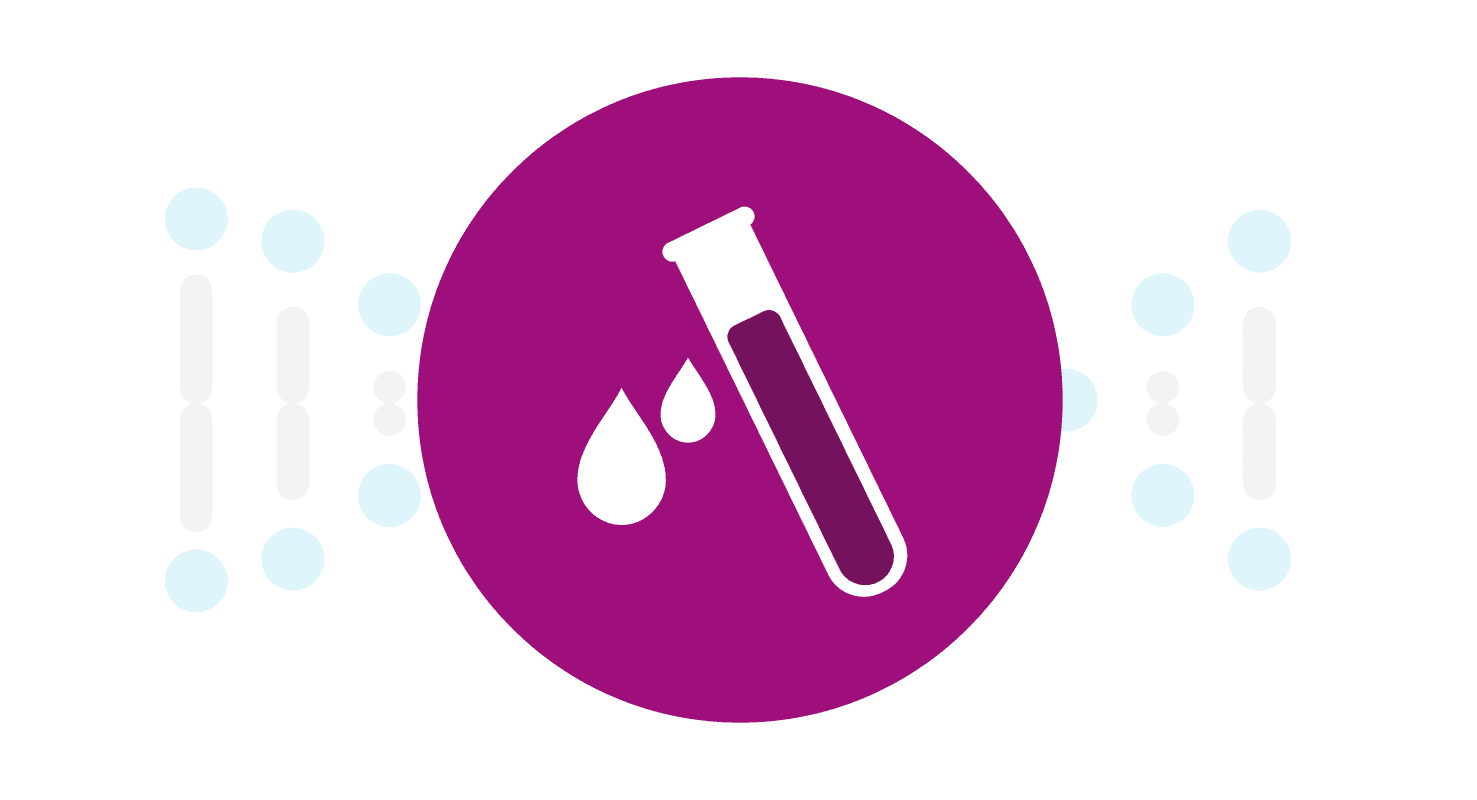November has become a time to raise awareness about health issues that may particularly impact men. On average in the U.S., men live 5 years less than women. Oftentimes that difference in life expectancy is because of preventable factors. Knowing about your genetic predisposition to certain health conditions can help you focus on screening and preventative measures. So let’s take a look at the genetics of some common conditions that impact men.
Cancer
Among men, prostate cancer is the most common cancer diagnosis. Genetics can impact the risk of developing prostate cancer in a few ways.
Prostate cancer can be caused by rare genetic variants that have a significant impact on risk. For example, a genetic variant in the HOXB13 gene is associated with a 33–53 percent chance of developing prostate cancer by age 80.
Other times, prostate cancer can be influenced by many common genetic variants, each with a small impact on the likelihood of developing cancer but that can make a big impact when taken together. But the work is not done, ongoing research into prostate cancer is also important as many of the genetic variants and models for prostate cancer may not be as predictive for men not of European descent.
Not just prostate cancer
It’s also important for men to be aware of their BRCA1 and BRCA2 status. While the BRCA1 and BRCA2 genes are most often associated with breast and ovarian cancer in women, variants in these genes, particularly BRCA2, can also increase the chances of breast cancer in men along with increasing the risk of developing prostate and pancreatic cancer. In addition, men with genetic variants in the BRCA1 and BRCA2 genes may want to inform their female family members who might share their genetic variant and the increased risk of developing these cancers.
In addition to cancers that impact reproductive organs in men, genetics can impact other kinds of cancer like colorectal cancer and skin cancer. And comprehensive genetic screening of high-impact, actionable genetic variants associated with cancer are also available.
What you can do
In addition to healthy lifestyle habits and learning about your genetic predispositions, keeping up to date with cancer screenings recommended by your healthcare professional is one of the best ways for men to stay on top of their cancer risk.
Mental Health

While anyone can be impacted by mental health challenges, men may be less likely to receive mental health treatment compared to women.
Many mental health conditions (including bipolar disorder, depression, anxiety, and panic attacks) are also impacted by many common genetic variants, as well as many other complex factors that may include brain chemistry, hormones, life experiences, and environmental stressors.
What you can do
While not all mental health conditions can be prevented, maintaining a healthy lifestyle (including a good diet and sleep habits, exercising, and avoiding alcohol, smoking, and drug use) can help prevent or manage symptoms. There are also professional options including medication and counseling. And, while sometimes difficult, seeking social support from family and friends can help men navigate mental health struggles.
If you’re in a crisis, help is available. Call or text 988 in the U.S. or find a helpline in your area..
Ongoing discoveries
There’s still much that we don’t know about the genetics of many mental health conditions. The hope is that by continuing to support research into conditions such as depression, the 23andMe Research Institute can partner with consented research participants to drive new discoveries, new ways of identifying who may be at risk for certain conditions, and ultimately new treatments.
Heart Disease

Finally, heart disease remains the number one cause of death in men. There are a number of different heart health conditions that are impacted by genetics (for example, cholesterol levels, atrial fibrillation, and coronary artery disease). While you can’t change your genetics, getting regular recommended screenings for things like cholesterol and blood pressure can help you know where your current heart health stands. This is especially important for men because a 2022 survey from the Cleveland Clinic showed that more than half of men are not getting regular health screenings.
What you can do
While you can’t change your genetics, there’s a lot that you can do to protect your heart health.
- Know your numbers. Be among the half of men who DO get regular check-ups for blood pressure and cholesterol.
- Get moving. Even a 30-minute walk most days makes a huge difference. And if you’re already moving, level up the intensity
- Eat smart. Focus on vegetables, fruits, and lean proteins, and watch your salt and sugar intake.
- Find your calm. Chronic stress is tough on your heart. Find healthy ways to manage it. Try breathing techniques or meditation.
- If you smoke, make a plan to stop. It’s one of the best things you can do for your heart.
Taking Charge of Your Health
Understanding your genetic predispositions for conditions like cancer, heart disease, and mental health challenges is a powerful first step. This knowledge is most effective when combined with proactive lifestyle choices, open conversations with healthcare professionals, and regular health screenings. By focusing on these actionable steps, men can take control of their well-being and work towards a longer, healthier life.
NOTE: Within this blog post, we use the word “men” to refer to people whose sex assigned at birth is male. However, we recognize that not everyone who experiences these health conditions will identify as male, and being categorized by birth sex may be an uncomfortable experience for some people. We do not mean to delegitimize anyone’s gender identity. Learn more about how 23andMe uses sex and gender to help deliver or interpret results for certain health, wellness, and traits topics that you may choose to receive in this help article.



